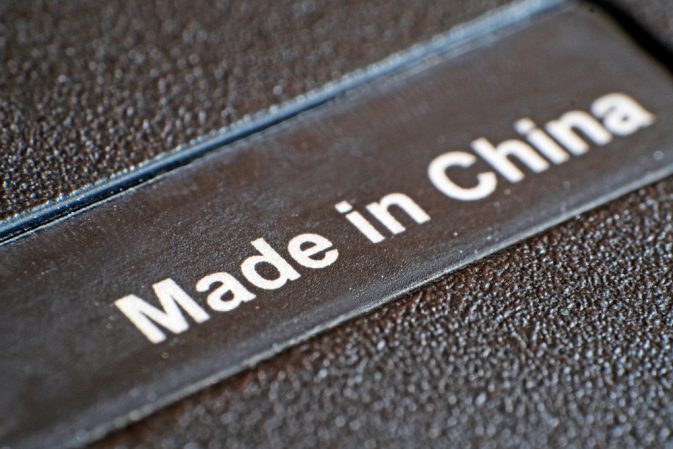Trump Fights to Fix Shipping Rates That Favor China

Did you know that it costs significantly more to mail a package to Boise from Boston than it does from Beijing?
According to the U.S. Postal Service, it costs around $20 to mail a small parcel weighing 4.4 pounds from one U.S. state to another, yet mailing the same package from China only costs about $5. Millions of Americans who have purchased consumer goods online from Chinese sellers for a few bucks, shipping included, have likely noticed this disparity first-hand.
This shipping differential is the product of the U.S. government subsidizing Chinese shipments. The government estimates USPS delivers Chinese goods at a 40% to 70% discount, losing money on each package it delivers.
This unfair dynamic hurts U.S. small businesses, whose bottom lines are increasingly reliant on e-commerce, because it allows China to dump its often-counterfeit products in the U.S. market at an artificially low cost. And it sticks taxpayers with the tab because they are on the hook for bailing out the government-funded USPS. Yes, you read that right. Uncle Sam allows this to happen and is ultimately to blame. With a friend like this, who needs enemies?
The Universal Postal Union, a United Nations agency that sets postal rates among its 192-member countries, dictates USPS’s artificially low rates. It bizarrely groups China – the world’s second-largest economy – with developing nations like Gabon and Fiji into its third tier of shipping rates, which are just a fraction of what the developed world must pay.
Successive U.S. presidents have turned a blind eye to this injustice. Until now. The Trump administration has made correcting this shipping status quo a priority. Last month, the federal Advisory Committee on International Postal and Delivery Services, a unit of the State Department, met to discuss its plan to reform UPU rules to allow the U.S. to self-declare rates for inbound delivery rather than follow UPU diktat. Self-declaration is already standard for larger packages that weigh more than 4.4 pounds.
Last October, President Trump announced the U.S. would begin to withdraw from the UPU entirely — a process that takes one year to complete — while simultaneously seeking to renegotiate UPU terms. In an effort to retain the U.S. as a member, UPU officials are meeting this month to consider the U.S.’s proposal.
Given that nearly half the world’s mail goes through the U.S., the UPU would be wise to accept the administration’s offer. If it refuses to do so, Trump shouldn’t let bureaucratic inertia at the State Department slow down his order to extricate the U.S. from this bad deal by this October.
Consider some examples of how this current shipping dynamic is hurting U.S. small businesses. Jayme Smaldone, a small New Jersey travel mug manufacturer, pays $6.30 to ship a mug domestically. His Chinese counterparts sell knock-offs of his product for $5.69, including free shipping all the way from China. Becca Peter, a Washington state designer packaging tape manufacturer, pays $3.50 for domestic shipping. Her Chinese competitors charge just $2 for their version of the product, shipping included.
Bigger businesses and franchises, such as the recently bankrupt Radio Shack and Toys R Us, are also negatively affected. Arthur Herman, a senior fellow at the Hudson Institute, highlights how an electric voltage measurer cost $24.99 at Radio Shack versus $15.82 at Deal Extreme, a Chinese e-commerce company. At this price differential, many Americans would have purchased at Radio Shack given its reputation and return policy. Yet factor in shipping — $5.95 at Radio Shack versus free at Deal Extreme – and all of a sudden American consumers are being asked to pay twice as much to purchase their product domestically. Herman argues this dynamic helped kill Radio Shack.
USPS loses about $300 million per year on Chinese imports — losing about $1 per small package it delivers. Given that China will deliver hundreds of millions of small packages this year, eliminating this postal subsidy would be enough to move USPS from the red into the black when it comes to Chinese imports.
Until this happens, USPS will be forced to continue raising domestic shipping rates in an attempt to recoup losses, as it has done in recent years. This means taxpayers and American shippers are effectively subsidizing Chinese merchants.
Reforming UPU rules has received broad support from across the political spectrum. It is a non-controversial way to level the playing field to help U.S. small businesses compete fairly against their Chinese competitors while also improving the trade deficit.
Whether UPU terms are reformed to allow the U.S. to self-declare its own rates, or whether the U.S. leaves the Swiss-based organization altogether, the days of something costing less to mail across the world than across the county line are numbered. Get ready to chalk up another victory for U.S. small businesses and taxpayers under President Trump.





